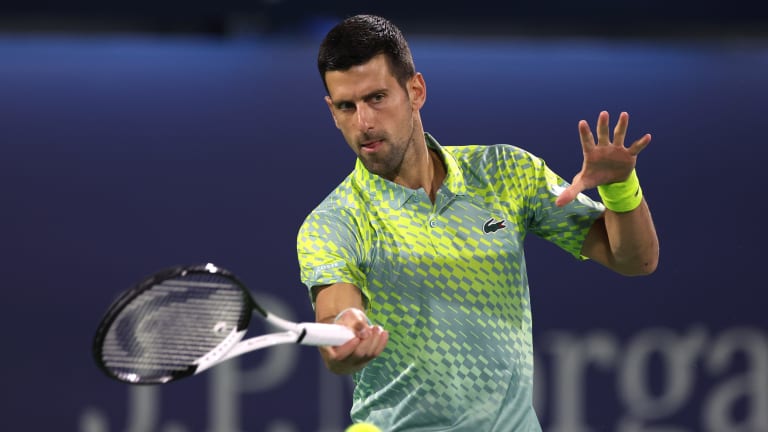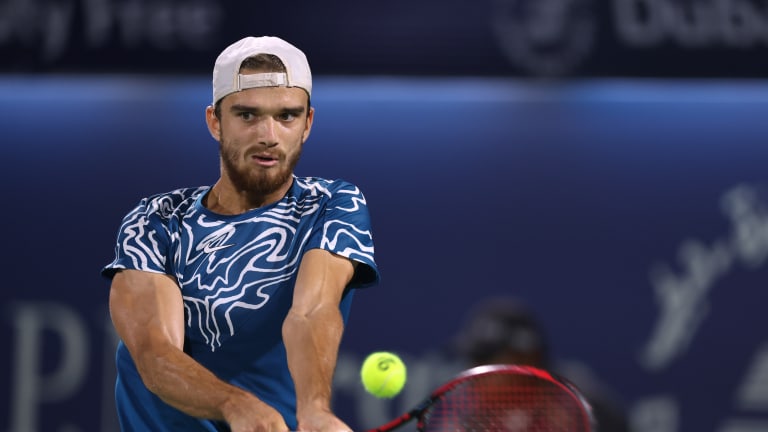ATP Dubai, UAE
No. 130 Tomas Machac takes Djokovic the distance, but Novak emerges 13-0 on the young season
By Feb 28, 2023ATP Dubai, UAE
Stefanos Tsitsipas wins Dubai, finally capturing first ATP 500 title of career
By Mar 01, 2025ATP Dubai, UAE
Felix Auger-Aliassime and Stefanos Tsitsipas to play in Dubai final
By Feb 28, 2025ATP Dubai, UAE
Tallon Griekspoor saves four match points in Dubai quarterfinal win over Daniil Medvedev
By Feb 27, 2025ATP Dubai, UAE
Andrey Rublev loses in first round in Dubai three days after taking Doha title
By Feb 25, 2025ATP Dubai, UAE
Karen Khachanov: I would've been dangerous at ATP Finals
By Feb 24, 2025ATP Dubai, UAE
Andrey Rublev: 2024 Dubai default “forgotten,” talks honesty, balance
By Feb 24, 2025ATP Dubai, UAE
Alex de Minaur confirms US Open mixed plans with fiancée Katie Boulter
By Feb 22, 2025ATP Dubai, UAE
ATP Dubai Draw: Ugo Humbert, Daniil Medvedev in top quarter
By Feb 22, 2025ATP Dubai, UAE
Andrey Rublev, defaulted in Dubai, to keep ranking points and prize money after appeal
By Mar 04, 2024No. 130 Tomas Machac takes Djokovic the distance, but Novak emerges 13-0 on the young season
It was the world No. 1's first match since winning his 10th Australian Open title.
Published Feb 28, 2023
Advertising
Advertising

New look, same result for Djokovic, who is vying for his sixth Dubai title.
© Getty Images
Advertising

Machac's two-handed backhand was lethal against Djokovic.
© Getty Images